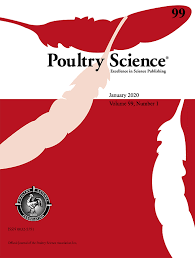Document type: scientific article available before publication in Journal of Veterinary Behavior
Authors: Ana Margarita Arias-Esquivel, Kwang Cheol Jeong, Peixin Fan, Jill Lance a, Sally DeNotta, Carissa Wickens
Preview: Cribbing is a stereotypic oral behavior in which a horse places its incisors on a fixed object, arches its neck, pulls against the object, and emits an audible grunt. Cribbing behavior (CB) has been associated with gastrointestinal (GI) dysfunction and gastric ulceration. This randomized crossover study aimed to evaluate the hypotheses that there would be differences in GI microbiota between horses receiving a gastric health support supplement or a placebo, as well as differences between cribbing horses (CBH) and non-cribbing horses (NCBH). Mature Quarter Horses with CB (n = 4) and sex-matched non-cribbing controls (NCB; n = 4) were randomly assigned to receive either a GI support supplement (TRT) or a placebo for 21 days, followed by a 2-week washout period. Treatment groups were then switched, and horses were treated for an additional 21 days. Before and after each treatment period, feces and gastric fluid samples were collected for microbiome analysis. Horses were acclimatized for two weeks before the start of the study, individually stalled for 16 hours/day, fed bermudagrass hay [1.2% BW, DM basis], and concentrate [0.5% BW], and turned out in pairs in paddocks for 8 hours/day throughout the study. Fecal microbiota differed between CBH and NCBH (P = 0.001), although microbiota remained unaffected by TRT. No differences were found in gastric microbiota between CBH and NCBH or between TRT and placebo. Administration of the supplement did not alter the GI environment of NCBH or CBH; however, a link between cribbing and fecal microbiota was found, suggesting that CBH may have a disrupted gut microbiome.





